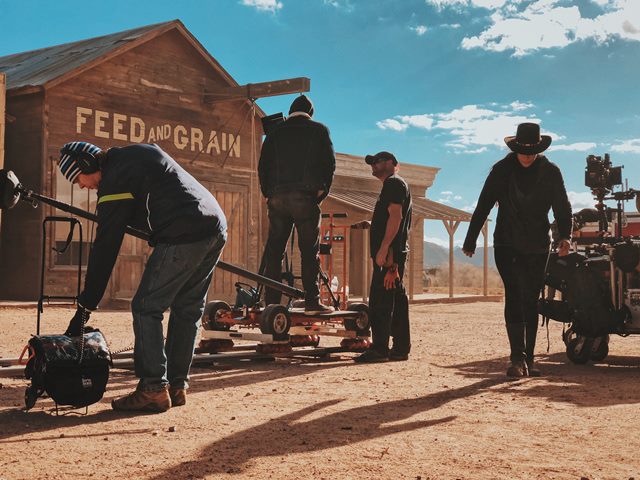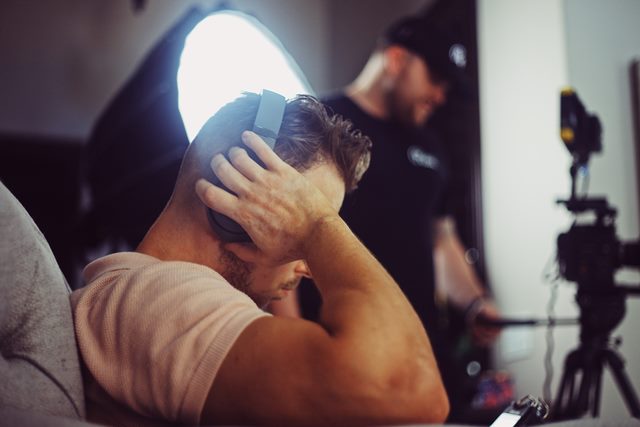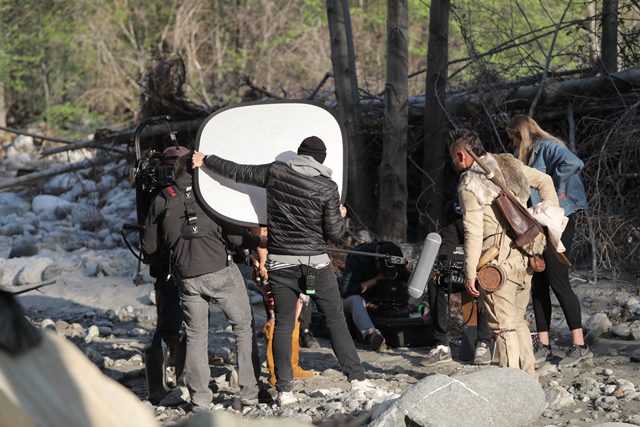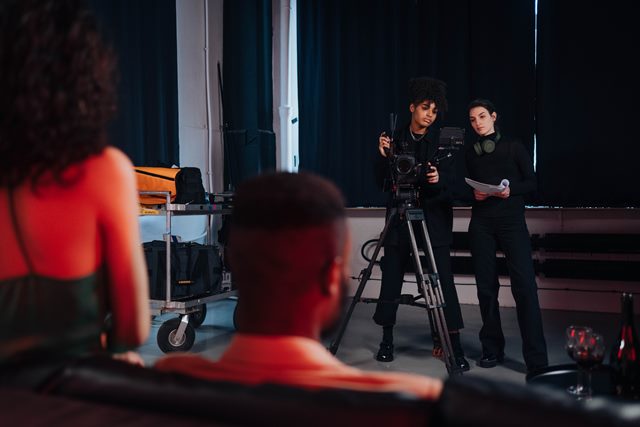An executive producer is a professional who contributes significantly to the creative elements of a television series or film. They are also in charge of the financial aspects of production. As such, the role of an executive producer can be either creative or financial, or both.
In a film, the executive producer generally has the final say on all creative aspects of the project, from the script to the cast and crew. They also work with the studio on matters related to budget and financing. In a television series, the executive producer is usually the showrunner, who is in charge of the show’s day-to-day operations.
If you are interested in a career in film or television, then you should definitely learn more about the role of an executive producer. Keep reading to learn everything you need about this important position!

Who Is an Executive Producer?
The executive producer is the person who sources and secures finance for film production. This could be through an independent financing business, a studio, or by financing it themselves. The executive producer’s top priority is to ensure that there is enough money to complete the movie.
Executive producers link the film’s investors and the producers who eventually handle production and oversee post-production. If the film is financed by a studio or production business, the executive producer is usually a senior employee or an executive.
In addition, an executive producer in television usually supervises the creative material, arranges and schedules filming alongside the producer and team, and may be engaged in the financial planning of a project. When there are numerous executive producers on a television program, the one who outranks the others is known as the “showrunner” or “leading executive producer.”

What Is the Role of an Executive Producer?
The executive producer is responsible for the overall production of a show, film, or any other type of production. They oversee all the details and make sure that everything runs smoothly without hassle.
As mentioned earlier, another role of an executive producer is to be responsible for the financial aspect. They need to ensure that the production is within the budget and that all the bills are paid on time.
Additionally, the executive producer is responsible for the legal side of things. They need to ensure that everything is above board and that there are no copyright issues.
Lastly, the executive producer is responsible for the marketing and promotion of the production. They need to make sure that people are aware of the production and that it is getting good reviews.
Have you ever watched a movie only because of the hype it generated? Or maybe you didn’t watch it, but your ears and eyes were filled up with talks, adverts, and thrillers of the movie. Then, the executive producer has done one of their crucial roles well.
Read: Top 10 Producers in the Producers Guild of America
Responsibilities of an Executive Producer During Pre-Production
The first stage of the filmmaking process is development, during which the executive producer(s) seek money, recruit talent, hire producers, and set a budget.

Secure Finance
The executive producer must secure funding for a feature film in various ways. This includes:
- Seek funding from other people or businesses, such as production corporations or film investment firms.
- If a film is paid for by the studio, it is the Executive Producer’s responsibility to present the budget to the studio, together with potential overage and predicted profit, in order to obtain funding permission.
Hunt for Talents
The executive producer may seek talents, such as A-list actors or a respected director, to be a part of the production in order to make it more appealing to studio buyers or funders. They also assist in contract negotiations for these celebrities. While searching for actors, the Executive producer must work in sync with the Director and Scriptwriter’s specifications.
Hire Producers
Once the executive producer has acquired money, they proceed to hire producers. However, remember that in certain circumstances, the producer comes on first and attempts to hire the executive producer. Either way, producers report to the executive producer.

Approve the Budget
Put Your Tech Company on the Map!
Get featured on Nicholas Idoko’s Blog for just $50. Showcase your business, boost credibility, and reach a growing audience eager for tech solutions.
Publish NowThe budget is created when the line producer breaks down the screenplay. They then submit it for approval to the executive producer and producer. Depending on the proposed budget of the line producer, the executive producer may need to raise more funds or put up more of their own.
Read: From Script to Screen: The Art of Filmmaking
The Role of an Executive Producer During Production
The extent to which an executive producer remains active during the production process is entirely up to them. Some executive producers may not participate in the film after signing the check. But others might prefer to be a part of the project from beginning to end. An executive producer is rarely involved in day-to-day production and is not needed to join the set.
Still, an executive producer must make sure of these two things during production:
- Ensure That the Project is On-brand
If the executive producer is a studio employee, they ensure that the film adheres to the company’s image and brand values.

- Visit the Set
An executive producer will come to the set to answer any high-level creative or budgetary questions. An executive producer is not required to visit the set, and their amount of contribution is entirely up to them.
Responsibilities of an Executive Producer Post-Production
During post-production, the executive producer’s responsibility is limited, and the EP may be preoccupied with another project. Along with the other producers, the executive producer usually watches the film’s first cut and provides criticism and notes to the director and editor.
This means an executive producer is responsible for the management and delivery of a project from the principal photography through to completion. This includes delegated tasks such as supervising the assembly of the final cut, organizing the colposcopy, hiring the music composer, and managing the budget.
The executive producer post-production is also responsible for the hiring of key post-production personnel such as the editor, visual effects artist, and sound designer. They will also liaise with the producer and director to ensure that the vision for the project is maintained throughout post-production.
An executive producer is a person who is responsible for the day-to-day operations of a film or television show. They are in charge of the budget, scheduling, and cast and crew. They also have final approval on all creative decisions.
The executive producer is the link between the creative and business aspects of the production. They ensure the project is completed on time and within budget.
Executive producers are often involved in the development of the project from its early stages. They work closely with the writer and director to ensure that the vision for the film is maintained.

Essential Skills for an Executive Producer
If you want to become an executive producer, here are some skills you must possess:
Must be good with Decision Making
Executive producers make numerous decisions throughout production, such as hiring and firing crew members, approving budgets, and negotiating contracts. Executive producers with strong decision-making abilities can make informed decisions that help their projects flourish. And those that can make quick judgments may be able to save a project from being delayed or having other problems.
Must Be Able to Build a Team
Executive producers must be good at team building because they frequently work with a group of people to develop content. And also, executive producers must be able to motivate and urge their staff to achieve their best work.
They must also know how to manage problems among production crew members so that everyone can work productively together.
Must Be Good With Scheduling
The ability to plan and handle many projects simultaneously is referred to as scheduling. Executive producers frequently have multiple projects in production at the same time. Thus, they must be able to manage their schedules and deadlines. They must also understand whether it is suitable to hire new employees or bring on additional resources for a project that requires greater attention.
Must Be Good With Resource Allocation
The capacity to identify how much of a company’s resources should be assigned to each project is referred to as resource allocation.
Put Your Tech Company on the Map!
Get featured on Nicholas Idoko’s Blog for just $50. Showcase your business, boost credibility, and reach a growing audience eager for tech solutions.
Publish NowExecutive producers are frequently in charge of allocating resources, such as money and time, to ensure that projects are finished on time and on budget. This necessitates executive producers to understand both their organization’s financial status and the needs of unique projects.
Must Be Creative
The ability to develop fresh ideas and solutions is referred to as creativity. Executive producers frequently employ their imagination to obtain funding for projects, devise novel marketing methods, and generate fresh content that people would like.
When problems arise during production, creativity can help you come up with unique solutions. For example, if a director needs an expensive item for a scene but does not have the means to purchase it, an executive producer may be able to find a method to obtain the object for free or at a reduced cost.
Must Possess Leadership Skills
The ability to guide and motivate a group toward common goals is referred to as leadership. Executive producers frequently lead creative teams that include writers, directors, performers, and designers.
Strong leadership abilities can assist you in efficiently delegating duties and ensuring that everyone on your production team understands their role in completing a successful project.
Before you go…
Hey, thank you for reading this blog to the end. I hope it was helpful. Let me tell you a little bit about Nicholas Idoko Technologies. We help businesses and companies build an online presence by developing web, mobile, desktop, and blockchain applications.
We also help aspiring software developers and programmers learn the skills they need to have a successful career. Take your first step to becoming a programming boss by joining our Learn To Code academy today!
Be sure to contact us if you need more information or have any questions! We are readily available.
[E-Books for Sale]
1,500 AI Applications for Next-Level Growth: Unleash the Potential for Wealth and Innovation
$5.38 • 1,500 AI Applications • 228 pages
Are you ready to tap into the power of Artificial Intelligence without the tech jargon and endless guesswork? This definitive e-book unlocks 1,500 real-world AI strategies that can help you.
See All 1,500 AI Applications of this E-Book
750 Lucrative Business Ideas: Your Ultimate Guide to Thriving in the U.S. Market
$49 • 750 Business Ideas • 109 pages
Unlock 750 profitable business ideas to transform your future. Discover the ultimate guide for aspiring entrepreneurs today!
See All 750 Business Ideas of this E-Book
500 Cutting-Edge Tech Startup Ideas for 2024 & 2025: Innovate, Create, Dominate
$19.99 • 500 Tech Startup Ideas • 62 pages
You will get inspired with 500 innovative tech startup ideas for 2024 and 2025, complete with concise descriptions to help you kickstart your entrepreneurial journey in AI, Blockchain, IoT, Fintech, and AR/VR.
We Design & Develop Websites, Android & iOS Apps
Looking to transform your digital presence? We specialize in creating stunning websites and powerful mobile apps for Android and iOS. Let us bring your vision to life with innovative, tailored solutions!
Get Started Today



